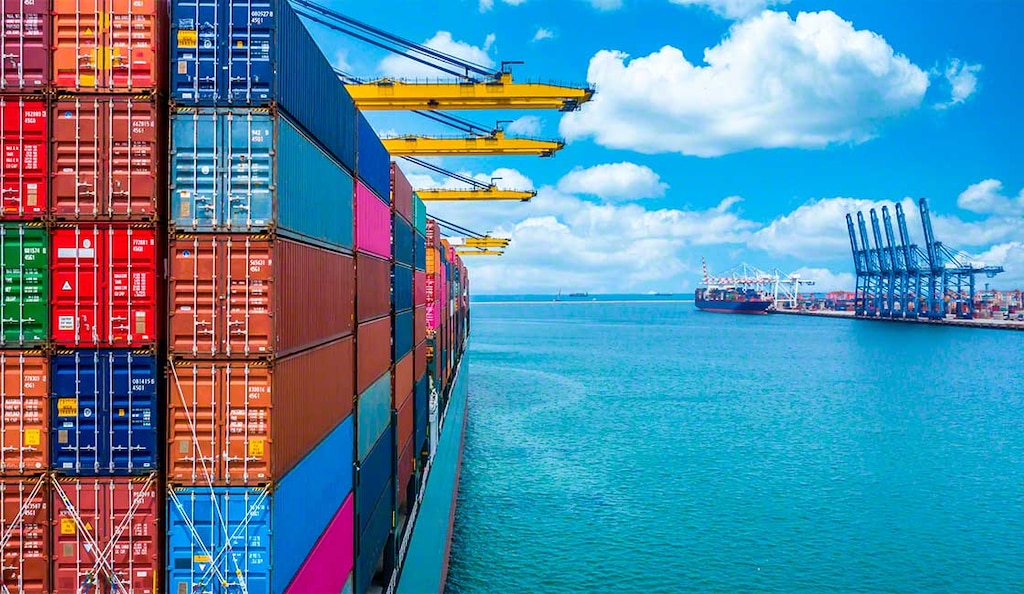
Green methanol for a more sustainable industry
Nowadays, most of the world’s methanol is produced from polluting fossil fuels such as natural gas and coal. Green methanol is emerging as a promising solution to combat carbon dioxide (CO2) emissions from manufacturing and transportation processes.
Replacing fossil-fuel-based methanol production with environmentally friendly processes could be decisive for a more sustainable industry.
What’s green methanol?
Methanol, also called methyl alcohol, is a chemical compound (CH3OH) used in all types of industries to manufacture materials such as plastics, paints, and solvents, to name a few. This colorless liquid can also serve as an alternative fuel in the transportation sector
The Methanol Institute ― the trade association for the global methanol industry ― defines green methanol (i.e., renewable methanol) as “a low carbon and net carbon neutral liquid chemical and fuel produced from sustainable biomass, often called bio-methanol, or from captured carbon dioxide and hydrogen produced from renewable electricity, referred to as e-methanol.”
The main difference between conventional and green methanol is the energy used in the production process. Instead of using fossil fuels such as natural gas and coal, green methanol is created by capturing CO2 molecules or through sustainable energy sources. “Thanks to an increase in affordable renewable energy, methanol can be produced based on wind or solar power, geothermal energy or hydropower — which reduces greenhouse gas emissions significantly,” says Thore Lohmann, Executive Director of the Fertilizer & Methanol Operating Unit at Thyssenkrupp Industrial Solutions.
According to the International Council on Clean Transportation (ICCT), there are four types of methanol:
- Gray methanol, produced from natural gas.
- Blue methanol, derived from natural gas combined with carbon capture and storage.
- Bio-methanol, obtained from sustainable biomass sources (green methanol).
- E-methanol, derived from renewable electricity and captured CO2 (green methanol).
Green methanol can be obtained via several innovative processes. As multinational company Siemens Energy indicates, “E-methanol is produced by chemically combining CO2 and hydrogen. First, hydrogen is produced by an electrolyzer. The hydrogen is converted into methanol in a reactor by catalysis with carbon dioxide (CO2). To produce ‘green’ (i.e., carbon-neutral) e-methanol, hydrogen from renewable energy is used in combination with biogenic CO2.”
Green methanol could play a crucial role in the transition to more sustainable logistics. “Renewable methanol has an impressive potential to help decarbonize the transportation sector. It can cut CO2 emissions by up to 95%, reduce nitrogen oxide (NOx) emissions by up to 80%, and completely eliminate sulfur oxide (SOx) and particulate matter emissions,” says Adolfo Benedito Borrás, Technical Coordinator of the EU-funded LAURELIN project, which develops innovative solutions for green methanol production.
Green methanol applications in logistics
Green methanol could be an efficient alternative to conventional fossil fuel production. In its report Green methanol, energy technology multinational Johnson Matthey points out that obtaining methanol sustainably would limit the environmental impact of companies’ manufacturing and transportation processes: “The producers of methanol are being encouraged by society to reduce their emissions at point of manufacture and if used as a fuel or fuel component, in use. Global energy demands are increasing and so too is the need for more renewable and sustainable sources of energy to help transition us to a post-fossil-fuel-powered world.”

Renewable methanol could have a positive effect on the logistics industry. A report from the Methanol Institute details several green methanol applications for the sector:
- Transportation fuel. Considering that land transportation is one of the biggest contributors to pollution, the widespread adoption of vehicles powered by renewable methanol would drastically bring down CO2 emissions in logistics.
- Shipping fuel. Green methanol could be a sustainable option for absorbing part of the world's huge demand for marine fuels. The supply infrastructure for conventional methanol is already in place, as this compound is shipped to seaports around the world. Thus, it would only have to be swapped for its green version.
- Power generation. Most of the electricity generated worldwide uses highly polluting fossil fuels such as coal, diesel, and gasoline. Renewable methanol is an easily accessible fuel that would drastically cut industrial emissions.
Renewable methanol is already being produced on an industrial scale in Europe, North America, and Asia.
This chemical compound has multiple applications, e.g., as a fuel or raw material for industrial and manufacturing processes. The Methanol Institute report foresees an even more sustainable future: “Methanol has shown itself to be a versatile, affordable, and stable energy source that’s well suited to use in transportation and industry. It has clear potential to help reduce greenhouse gas emissions if it’s adopted in place of fossil fuels.”

The road to green logistics
Nowadays, companies are striving to lessen the environmental impact of their operations. The use of green methanol in manufacturing processes can be complemented with other sustainable initiatives, such as the changeover to electric trucks for transportation in the logistics sector.
Commitment to green technologies and sustainable energies is essential to promote more planet-friendly logistics and industrial processes. Green methanol could become a solid alternative to fossil fuels. It just might be able to fight effectively against the environmental impact of international freight transportation.
